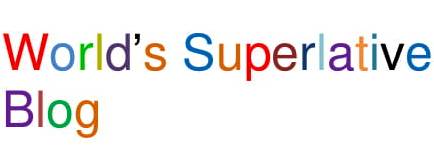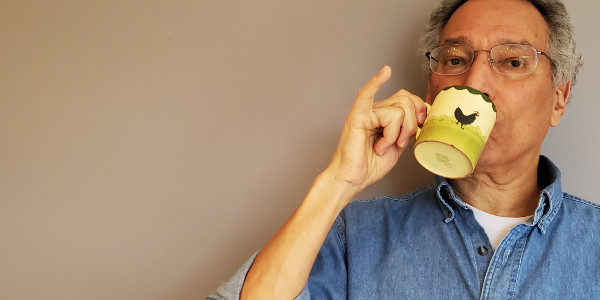The Problem of Induction
When I was courting my wife, one night at dinner her 5-year-old daughter asked, “Mama, why do Jewish men always stick out their pinky when they drink tea?” I immediately put down my cup. “Why do you ask, sweetie?” Annie said to Hillary, who answered, “Well, Kenny just did it, and our other Jewish friend, Alan, does it too.”
Hillary had made a generalization based on two observations. Annie and I were amused, but skeptical that a larger sample of tea-drinking Jewish men would support her inference. (By the way, I’m still not convinced that I raise my pinky when I drink tea, but who knows, maybe I do. I’ll have to remember to ask Hillary.)
We’re all guilty of faulty inductive reasoning. Recently I was in Yakima, Washington doing covid testing. Our team’s main focus was the Yakama (curiously, spelled differently than the city) Nation since they had been particularly hard-hit by the virus. With the cooperation of tribal elders, we visited several Yakama housing developments and went door-to-door asking residents if they were interested in being tested. The little houses in the first development were old, with peeling paint and an occasional broken window. The yards were rocky and weedy, and there was broken glass by the sides of the roads. Despite the sad surroundings, the residents were upbeat, and thanked us for our work. The next two developments were similar. That was enough for me to conclude that all Yakama tribal housing was poor and run down. I wondered if this “truth” extended to other Washington tribes, and perhaps even beyond the state.
Then toward the end of the week we went to another housing development on the reservation. It was totally different. The entrance was protected by a remote-controlled gate. The roads were clean and well-paved. The houses, beautifully constructed with a combination of wood and stone, were carefully cared for. And the yards had nicely mown lawns. So much for my impression of Yakama Nation Housing! I realized that based on just a few cases I’d made an unfounded inference, perhaps unconsciously invoking a pernicious stereotype of Native American reservations.
Since the time of the Greeks, philosophers have addressed “the problem of induction.” A typical formulation goes like this: I believe that the sun will rise tomorrow, since it’s risen every day in memory. Moreover, there are no counterexamples of the sun not rising. Thus, I conclude that the sun will continue to rise every day. So far, so good. But among other issues, the question is how many instances do we need to be secure in the belief that the sun will indeed rise every morning—or that all Jewish men hoist their pinkies aloft while drinking tea, or that all Yakama reservation housing is run-down?
Bertrand Russell makes the point that a chicken who’s fed every day expects this pattern to continue, ad infinitum. But then one day, instead of feeding it, the farmer wrings its neck and has it for dinner. So much for the predictive value of chicken induction. But I have to say, in this case Russell’s hen was much happier with her unwarranted conclusion than she would have been had she acknowledged the uncertainties of inductive reasoning. That is, being secure in the false belief that she would be always be fed daily seems a much better state of mind than waking up worrying about whether or not some grain would appear, or considering that her neck might be wrung.
Usually, when we employ inductive reasoning we’re not trying to shield ourselves from the possibility of a grim outcome. Rather, we think we’re deriving a truth, thereby increasing our understanding of the world. But we need to use induction with great care. It’s all too easy to generalize from limited, and possibly misleading, information. This can lead to erroneous and damaging conclusions. If we’re to properly use inference we need to observe carefully, make tentative hypotheses that are subject to further testing, and avoid coming to premature conclusions. In other words, keep an open mind. I think I’ll meditate on that over a cup of tea.




I’ll be watching you!
(Excellent article! Thinking how often I think like this and feeling irritated with myself…)
Good thoughts! I think it was the philosopher Karl Popper who pointed out that it’s easy to demonstrate that something is NOT always true – you only need one example to the contrary. But it is impossible to prove that something is ALWAYS true, since an exception may always occur – or be found – in the future.
This may be (worryingly) relevant to the shenanigans surrounding the US election results – far easier to throw doubt on the results by suggesting there may have been irregularities, than to prove it was free from any efforts to nudge the outcome (from either side!) In brief – mud sticks….I do hope this (the shenanigans) do not go on and on. Good luck and God bless us all!
“…That is, being secure in the false belief that she would be always be fed daily seems a much better state of mind than waking up worrying about whether or not some grain would appear, or considering that her neck might be wrung…”
Ignorance, it would seem, is bliss.
Since that first observation when I was 5, I do remember you raising your pinky – though whether it was done subconsciously or tongue-in-cheek as a result of that first observation, we’ll never know. 😉
This is such a good word to take to heart. In “The Trouble with Physics,” Lee Smolin, says “It is, after all, only because we are built to come to conclusions from incomplete information that we are so vulnerable to lies.”
Love the photo!
Do you suppose the chicken was cooked on an induction cooktop?
Ken, Your essay topics are so interesting! And, you have an uncanny ability to compose with the eye of the artist and the logic of the scientist. To top it off, you conclude with a wryness that reminds me of O’Henry. Looking forward to many more!